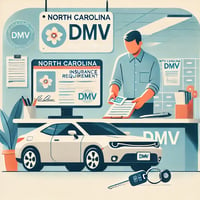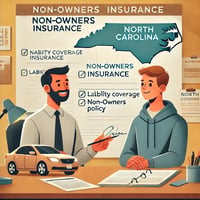Hurricanes can leave devastating impacts on homes, causing significant damage and emotional...
What to Do After a Car Crash: A Step-by-Step Guide
Car accidents can be stressful and overwhelming experiences. Knowing what to do immediately following a crash can help ensure everyone’s safety and protect your rights. Here’s a comprehensive guide on the steps you should take after a car accident.
1. Stay Calm and Assess the Situation
The first step is to remain calm. Take a deep breath and assess the situation. Check yourself and your passengers for any injuries. If you or anyone else is hurt, call 911 immediately.
2. Ensure Safety
If the vehicles are drivable and it’s safe to do so, move them to the side of the road to prevent further accidents. Turn on your hazard lights to alert other drivers. If you’re unable to move your vehicle, stay inside with your seatbelt fastened until help arrives.
3. Call the Authorities
Regardless of the severity of the accident, it’s advisable to call the police. A police report can be crucial for insurance claims and any legal matters. When the police arrive, provide them with accurate information about the accident, but avoid admitting fault.
4. Exchange Information
Gather information from all parties involved in the accident. This includes:
- Names and contact information
- Driver’s license numbers
- License plate numbers
- Insurance company names and policy numbers
- Make and model of the vehicles involved
If there are any witnesses, collect their contact information as well.
5. Document the Scene
Take pictures of the accident scene, including:
- Damage to all vehicles
- The position of the vehicles
- Any relevant road signs or signals
- Skid marks or debris on the road
These photographs can serve as valuable evidence for insurance claims and potential legal issues.
6. Seek Medical Attention
Even if you feel fine, it’s wise to see a doctor. Some injuries, like whiplash or concussions, may not be immediately apparent. Documenting any injuries right after the accident is important for insurance claims and your health.
7. Notify Your Insurance Company
Report the accident to your insurance company as soon as possible. Provide them with all relevant information, including the police report number and any documentation you’ve collected. Be honest and accurate in your account of what happened.
8. Keep Records
Maintain a file with all documents related to the accident, including:
- Police reports
- Medical records and bills
- Correspondence with your insurance company
- Photographs from the scene
This organized documentation will be helpful for any claims or legal proceedings.
9. Follow Up on Claims
Stay in touch with your insurance adjuster and follow up on your claim. Be prepared to answer questions and provide additional information if needed. Keep a record of all conversations and correspondence with your insurer.
10. Consider Legal Advice
If there are significant damages, injuries, or disputes about fault, consider consulting with an attorney who specializes in auto accidents. They can help you navigate the complexities of the legal system and ensure your rights are protected.
11. Reflect and Move Forward
Accidents can be traumatic experiences. After you’ve dealt with the immediate aftermath, take some time to reflect on the incident. Consider any lessons learned and whether there are changes you can make to improve your driving habits moving forward.
Conclusion
Experiencing a car crash is unsettling, but knowing how to respond can make a significant difference. From ensuring safety and gathering information to notifying your insurance company and seeking medical attention, these steps will help you navigate the aftermath of an accident effectively.
At Harbor Insurance Agency, we’re here to assist you through the insurance process and provide support whenever you need it. If you have any questions about your coverage or need guidance after an accident, don’t hesitate to reach out! Your safety and peace of mind are our top priorities.



